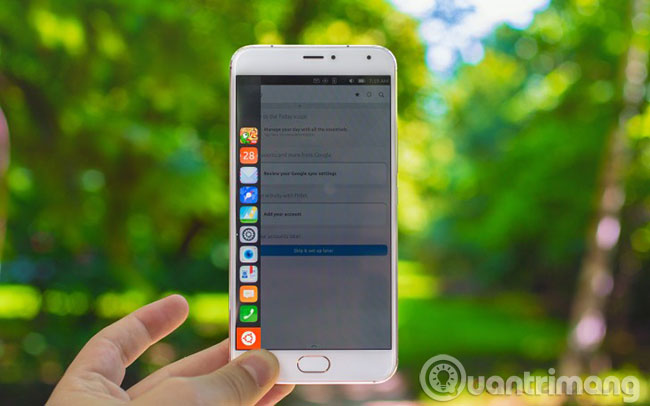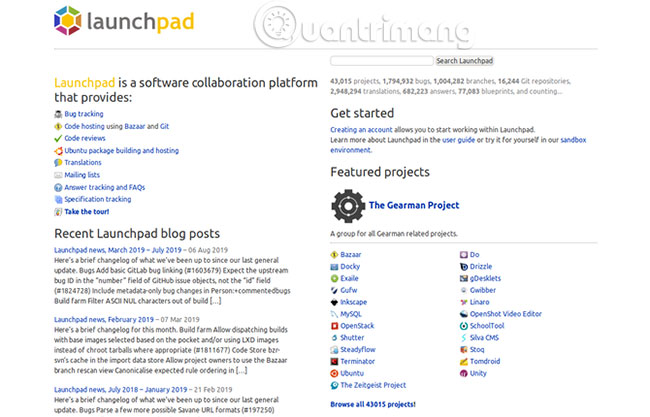8 ways Ubuntu changes and improves Linux
Ubuntu is the most prominent Linux distribution in the world. Ubuntu and its developer, Canonical, have been plagued by a lot of fuss over the years, but the Linux world is getting much better thanks to both.
So stop and take a moment to appreciate some of the things Canonical and Ubuntu have brought to the Linux community.
How has Ubuntu contributed to the development of Linux?
- 1. Ubuntu places emphasis on the desktop
- 2. Linux is now available on more hardware
- 3. Ubuntu has reached millions of users
- 4. Ubuntu powers many of the most popular distributions
- 5. Canonical created a new universal package format
- 6. Ubuntu attracts third party commercial software
- 7. Canonical has adapted GNU / Linux for phones
- 8. Launchpad has become the home for many projects
1. Ubuntu places emphasis on the desktop

By the time Ubuntu launched in 2004, Linux could be used on desktops and laptops, but it wasn't a great experience. Canonical has turned Ubuntu into 'Linux for everyone', and added features that make it easier for Linux to use as a primary operating system. Such features include hardware drivers and multimedia codecs that are easy to install.
You can also order an Ubuntu CD to your door.
Canonical continues to create many initiatives for the desktop. The company tried integrating direct messaging into the desktop, creating the Ubuntu One file and file sync service, as well as designing its own Unity interface.
Linux is still more popular on servers than laptops and Ubuntu is not even considered the easiest or most intuitive option. Many developers outside the Ubuntu community have made efforts to make the Linux desktop more stable and comfortable.
However, today's Linux desktop is in a much better position than a decade ago and Canonical has played an important role in making that a reality.
2. Linux is now available on more hardware
Part of Canonical's vision to provide a consumer Linux desktop is to provide Ubuntu as an alternative in stores. The company has contacted hardware manufacturers to do this. Over time, options increased, from both small businesses like System76 to multinational companies like Dell.
Dell is not the only major company supporting this. HP also sells Ubuntu. There are currently many Linux computers that you can buy from different companies.
Canonical has long supported the development of desktop computers for Linux consumers, even when new names, such as System76 and Pop! _OS and Purism with PureOS, have begun to appear.
3. Ubuntu has reached millions of users

Canonical's effort to focus on the desktop paid off. People are rushing into Ubuntu and now the operating system has millions more users than other Linux versions.
The name Ubuntu is old enough for you to mention this distribution to computer enthusiasts in general and expect them to know what you are talking about.
Many starters are Ubuntu users but have moved on to other options. However, you may not be able to use Ubuntu anymore, but be grateful that Ubuntu gave you an easy place to learn about Linux, when you first made the switch. Many projects now include developers and contributors who would probably not be part of the community without Ubuntu.
4. Ubuntu powers many of the most popular distributions
Ubuntu is not only one of the most popular desktops based on Linux, it is also an important part of the infrastructure, offering many alternatives.
When running Ubuntu, you download the application from the software repository, which hosts all the programs and components that provide an on-screen experience. Developers create and maintain this code, while organizations or companies like Canonical distribute it through repositories.
Canonical does not generate most of the code in the repository, but possesses some components, such as the Linux kernel, undergo additional testing and receive additional security patches.
Linux Mint, elementaryOS and Pop! _OS are three prominent Ubuntu alternatives (all based on the Ubuntu repository). Canonical does not charge a service fee for them or anyone else. But that does not affect the time and money of Canonical employees, nor does the Ubuntu community contribute to the wider Linux ecosystem in this way.
5. Canonical created a new universal package format
The way developers distribute software on Linux is changing right now. Instead of moving to a software repository model, many new applications are coming to users' desktops via universal package formats. One of those is the snap pack format, coming from Canonical.
In the past, many developers had created software for Ubuntu and couldn't fix the hassle of creating options that ran on many other versions of Linux. If you have used an RPM-based distribution, instead of a DEB-based distribution like Ubuntu, then you cannot install the program, unless you try to build the application yourself using source files.
After following simple instructions to enable snap support, you can install the snap version of the application, regardless of whether or not you are running Ubuntu.
Again, snaps are not the only universal package format for Linux. But Canonical has made every effort to attract the interest of developers and hold the software packaging process.
6. Ubuntu attracts third party commercial software
One of Ubuntu's strengths, relative to other releases, is attracting third-party development. Specifically, Ubuntu brings many proprietary, commercial, and cross-platform software that already exists on Windows or macOS.
As the article mentioned, this is not always beneficial for the vast Linux ecosystem. But in some cases, such as with Steam, programs that come to Ubuntu quickly spread to other distributions. This makes a difference for gamers or professionals associated with the use of specific applications. Now Linux is much more feasible.
With the snap format, a program now rarely appears but only for Ubuntu. The apps available in the snap store are now more accessible to everyone.
7. Canonical has adapted GNU / Linux for phones

Android phones use the Linux kernel, but that's all they have in common with the version of Linux you install on your computer. That's because most non-kernel components are not the same.
With Ubuntu Touch, Canonical has sought to bring a Linux-like version of Ubuntu to mobile devices. And this company has succeeded! Certainly, these devices have limitations. Updates are hard to distribute and many handsets are only available in a few markets. Finally, Canonical sees no potential to continue investing in the project.
However, the Ubuntu Touch interface continues to exist through the UBports project. Thanks to the open source nature of Ubuntu Touch, community members can continue from where Canonical left off. Ubuntu Touch is one of the options available for PinePhone, can also be installed and run on Librem 5. It is also a aftermarket option on some Android phones.
8. Launchpad has become the home for many projects

Launchpad is a software collaboration center for thousands of free and open source applications. It is like Github, has no relationship with Microsoft.
Launchpad started as an exclusive project to generate revenue for Canonical, the company could then use the money earned to support further Ubuntu development. After criticism, Canonical gradually released variations of the site under an open source license, until all Launchpad became open source in 2009.
Over the past decade, Launchpad has acted as open source infrastructure projects that can be used to share source code, track bugs, participate in discussions and send information related to applications or innovations. create another.
Ubuntu is a great operating system based on Linux. Without other options, many people are willing to use it on Windows and macOS. Canonical and the wider community have done such wonderful work over the years.
What are some of your favorite mentioned articles? Share your thoughts with everyone in the comments section below!